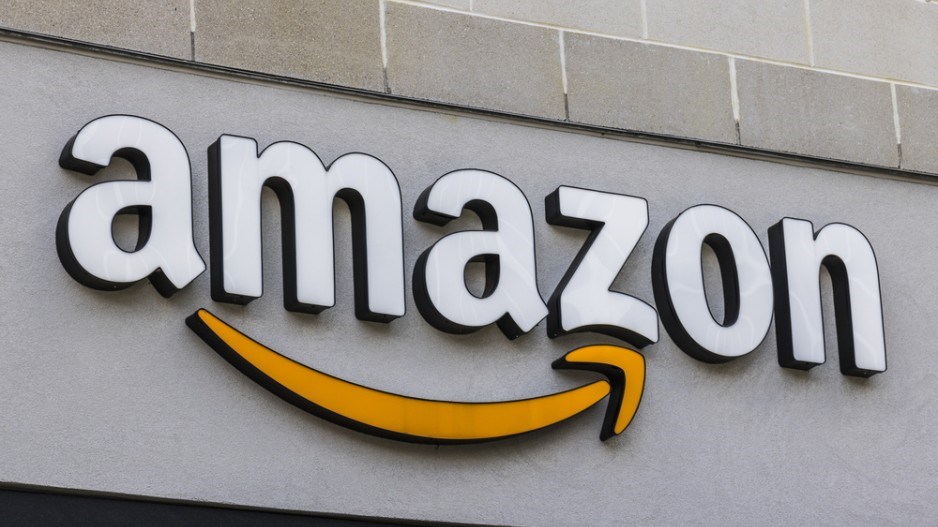The COVID-19 pandemic may have bumped e-commerce companies like Amazon.com Inc. (NASDAQ: AMZN) to record highs in stock-market valuations, but trouble may be coming if they do not reinvest in elements that reflect social values.
That is one of the key takeaways from a new brand loyalty study conducted by University of Victoria’s Gustavson School of Business, which noted that the Seattle-based e-commerce giant, whose stock price surged passed US$2,640 per share in June as physical retail stores were locked down, suffered the report’s biggest brand-trust slide – down 17% from 2019 – year-over-year.
The only brand to suffer the same drop in consumer trust in the Gustavson Brand Trust Index 2020 report from 2019 was Quebec-based Agropur Dairy Cooperative – a result that was surprising to Gustavson dean Saul Klein, who is also one of the researchers on the survey.
Klein noted that this year’s index contained two data sets, one from January and February before the pandemic and one from afterwards – specifically to gauge how the 1,050 Canadian consumers in the poll changed their trust patterns after COVID-19. This makes Amazon’s slide even more perplexing, he said.
“We were expecting that they [Amazon] would get a bit of a bump with so many more people ordering online,” Klein said. “What happened was that they dipped even more after COVID. That was interesting.... I would say that there are two things: We find that value-based elements are becoming more important for brands, as well as these elements taking on even more significance in a COVID environment. Consumers are asking more: ‘Are these brands doing good things?’”
Earlier this month, three Amazon warehouse workers in New York sued the company for failing to accommodate employees in social distancing by putting pressure on teams to “continue hitting metrics to keep up with surging demand,” exposing employees to the risk of contracting COVID-19.
This comes after months of criticism from other workers that the company isn’t doing enough to protect vulnerable employees; one worker who organized a protest on Staten Island in New York was fired in March for allegedly violating social distancing recommendations, and two others in Seattle were fired in April after voicing warehouse safety concerns.
Klein said these headlines – along with some products seeing a COVID price hike, although that may not be the fault of Amazon because the company acts only as a storefront for many suppliers who control pricing – are especially damaging in a retail environment in which consumers place social values increasingly as a deciding factor on purchases.
“Consumers are asking more questions now,” Klein said. “Is this company doing good things for society? Yes, it is doing good things for me, but is it also doing good things for people at large?... What we found is that, while people may be using Amazon more in the COVID environment, they are trusting them less.”
That was reflected in the Gustavson report, which showed that while Amazon fell across the board in all 13 categories of trust attributes perceived by the consumer, the single sharpest drop came in the “caring about societal well-being” category.
Klein also speculated whether the steeply increased demand during COVID has put previously unseen stresses in Amazon’s delivery systems, resulting in slower deliveries or making some items unavailable. Such occurrences may open up certain consumers who otherwise would not have placed as much weight on the social-justice issues to taking a more critical stance towards the e-commerce giant.
And despite Amazon’s success financially during the entire time, Klein said the company cannot take this issue lightly.
“If you are losing trust in a time when people have to use you, what’s going to happen to your brand when they don’t have to use you, when they have more choice?” he said. “Once retailers start opening up, if consumers have lost any kind of faith in Amazon, they could say they rather deal with a retailer that they trust. And retailers typically have very high trust in our studies. So once people have a choice, they may move back to a traditional retailer.”
A lot of that, Klein added, would also depend on whether conventional retailers can boost their e-commerce games to capture the consumers who have gotten acclimated to buying online.
The Gustavson report found that consumers’ trust in brands was lower almost across the board this year, reflecting public scepticism surrounding businesses and the products they sell. That’s why, Klein said, that a major driver like taking stances and reflecting social justice issues should not be overlooked by any business in this age – lest they let an already difficult market become even more challenging.
“It’s part of the whole value proposition,” Klein said. “A brand needs to be able to deliver on its core promises of reliability, quality and value-for money. But that’s just the table stakes to get into the market. The next step up is how to differentiate yourself on the services. How customized can it be? How well do you communicate with your customers? How do you protect their privacy? And then, the third level is the value-based one. Consumers want to use their purchasing power on companies whose values align with their own – or are seen as having a larger purpose. That could mean treating employees well or contributing to local communities.
“We are seeing a revolution; companies that can achieve success on all three of those levels are the ones surviving and doing well.”
The full report can be read at https://www.uvic.ca/gustavson/brandtrust/.




